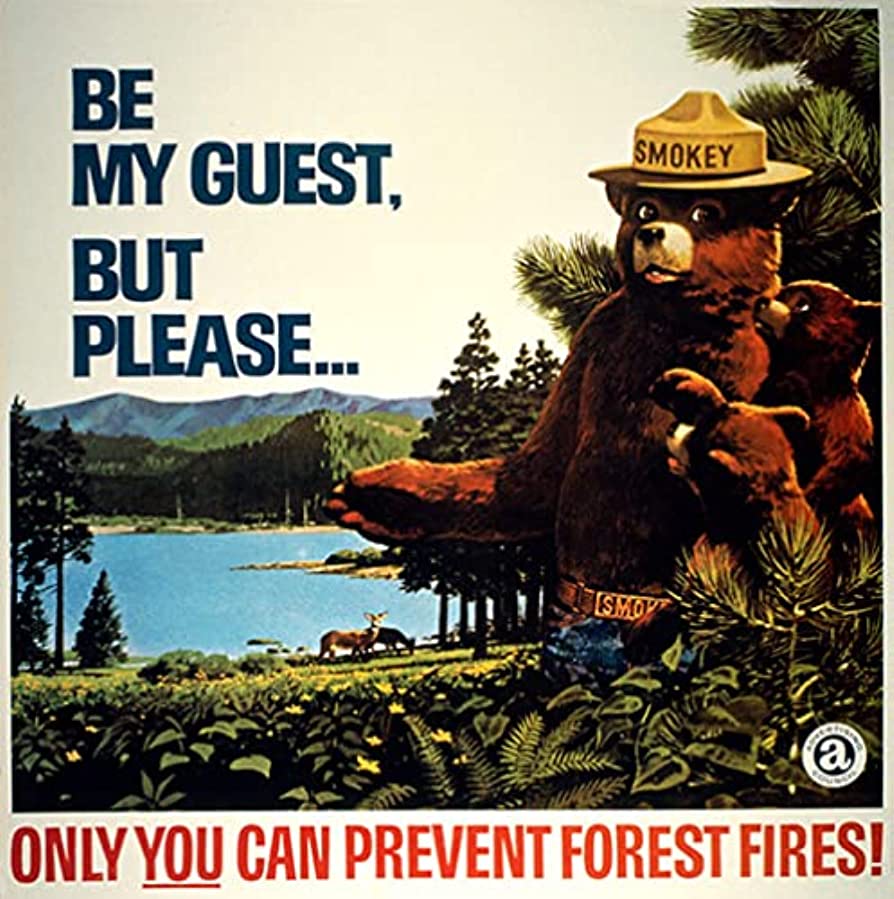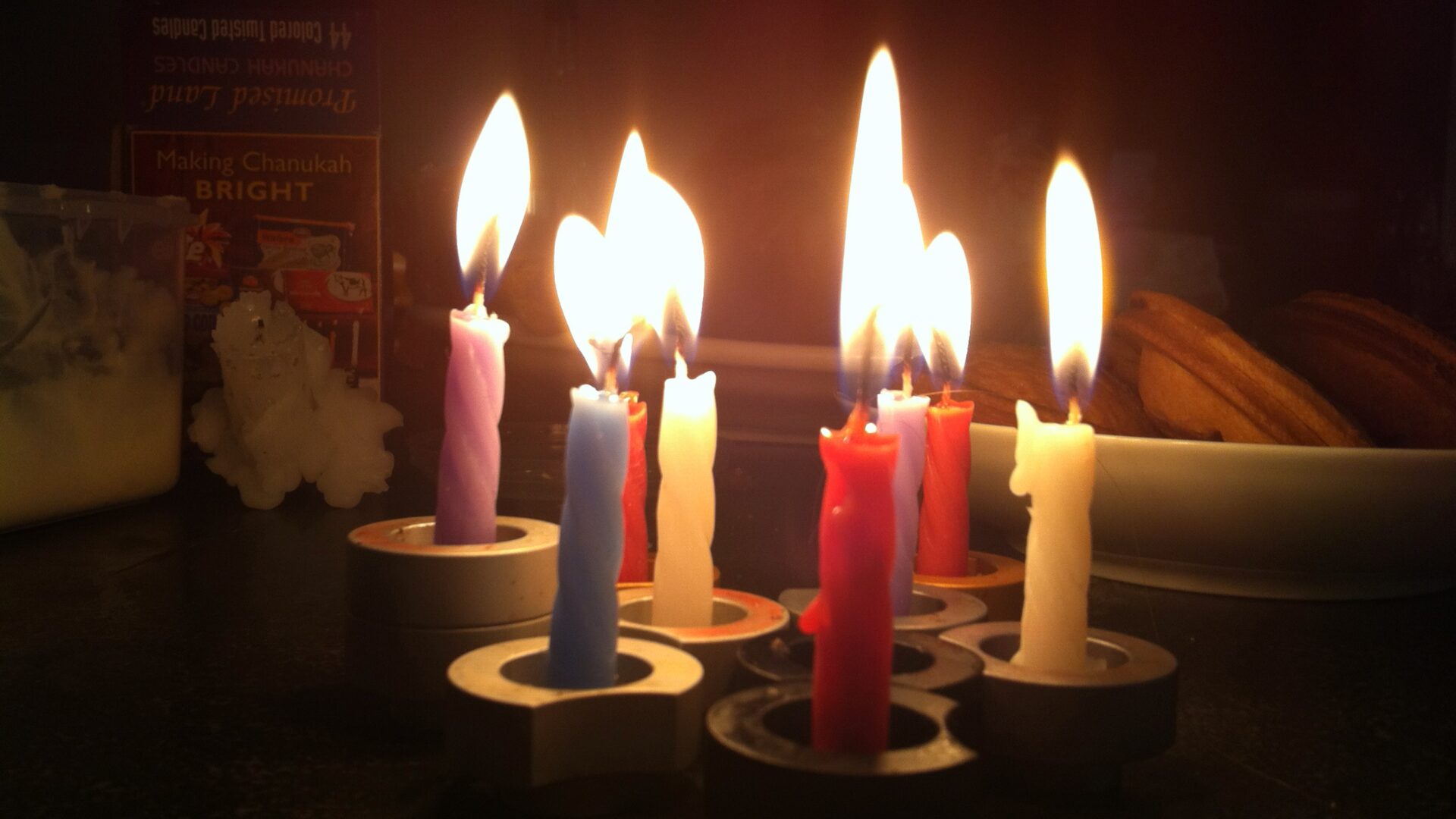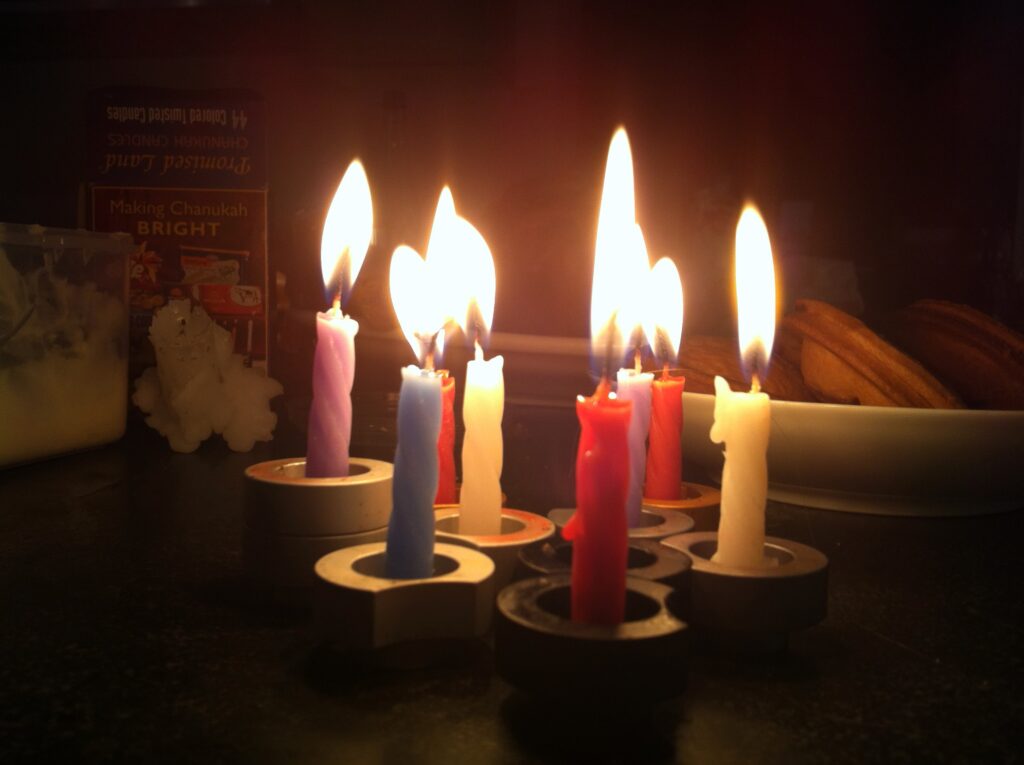The Candle and The Forest Fire
I was recently attacked while I was at home, at least that’s how it felt to me. The challenging thing is that the attack came from friends, and they were all having a good time. My wife had invited a bunch of people, all of whom should know that I am Autistic, over for a brunch. Almost none of these people have ever asked what it means to be Autistic, and most of them have assumed that my being Autistic should in no way effect their behaviour, even when in my house. On this particular occasion the noise level from conversation in the room very quickly escalated to a point which was physically painful, and triggered a ‘fight-or-flight’ response.
I ended up fleeing to our bedroom and hiding out until everyone had left. As far as I can tell no one even noticed that I had disappeared, and no one had any awareness that their behaviour had been harmful. Someone even sent me a note lamenting that he hadn’t gotten a chance to chat with me. He observed that it had been loud, but didn’t connect the dots to realise that the noise was a problem for me. And this from someone whose professional life is all about connecting the dots.
The Forest Fire
I complained to friends afterwards, and was told some combination of: A) people had no idea that the noise might be a problem; B) people were unaware that they were being noisy; and/or C) they have no idea what this might feel like for me. Well, at least that third one is something I can address. This then, is what it felt like:
Imagine being an animal trapped in a burning forest. You can feel the heat intensely enough to cause pain. You look around, panicked. On one side of you is a cliff, in front of you is a strip of fire. Beyond the strip of fire you can see some clear ground and it looks like there is a path to safety. But you need to go straight through the fire first. You know it will hurt, but it is your only hope. You freeze for a moment, absorbed by the horror of the situation. You steel yourself to run…..
Sensory Sensitivity
One of the characteristics of my sensory system is that I am usually far more sensitive to sound than most people. Sometimes my sensory system flips and I crave loud sounds, but this is rare, and I only mention it to illustrate how badly wrong the things ‘everyone knows’ about Autistic people are. I want to be clear that you should understand ‘more sensitive’ to mean ‘capable of taking in way more audio information than most people.’ So it’s kind of like being the sonar operator on a submarine: I can hear way more than anyone else, but unexpected loud noises can be painful, even debilitating. This augmented hearing is only a ‘disability’ when other people make noise that they think is fine but is above my pain threshold, or overwhelms my ability to filter out one voice from a sea of sound.
Sensitive Hearing Can Be a Problem
The first level of sound being an issue is when there is too much background noise and/or too many conversations going on at once, or if even one or two conversations are going on but they are what I consider too loud. I have a hard time separating out anyone’s words. If you need to raise your voice to talk to me, I probably can’t make sense of what you are saying.
The next level is discomfort, followed by physical pain. I feel the hubbub of your conversation as if it is pressure trying to cave in my skull. It is not a pleasant feeling.
How I Think This is Different for non-Autistics
I imagine that what most non-Autistic people mean when they talk about not liking loud noise is analogous to holding your hand too close to a candle, as compared to my experiencing it as if I am in the middle of that forest fire.
I get the sense that for non-Autistic people the discomfort ceases once they move far enough away from the noise. For me it lingers. Sometimes for hours. Sometimes for days. It took me over two days of complete solitude to recover from the experience I described above.
Pay More Attention
Psychologists describe Autistic people as having ‘deficits’. I describe non-Autistic people as having an ‘attention deficit’ because they frequently behave in ways which are harmful to people like me, and fail to notice that we are negatively affected. This would be more tolerable if most non-Autistic people were not so willing, even enthusiastic, to chastise Autistic people for things we do which they find inconvenient or hurtful.
If you have friends or family members who are Autistic, or otherwise disabled, take the time to try to find out what they think their diagnosis really means. Ask them if they have recommendations of reading which they feel captures their experience. Or seek writings by people who have the same condition. Don’t listen to anyone who talks about being Autistic as if it is a bad thing, or a pathology.
Talk to the person. Remember that everyone who is Autistic is different in their own way. Approach the conversation humbly, assume that most or all of what you think you know is wrong, or inapplicable. Don’t try to figure out what they can do to adapt to you, propose ways in which you can adapt to them. Be sensitive to the idea that living in a world which is largely a hostile environment is stressful. Don’t assume that just because you think your behaviour is normal that that means it isn’t potentially harmful to others.
Ask Questions
If you are spending time with someone who has sensory issues, or are visiting the home of someone with sensory issues, ask questions about what sorts of behaviour might be inappropriate. You can find information about the different types of sensory issues someone might have in Understanding The Autistic Mind. Remember that sensory issues are not static. Behaviour that might have been okay last week might not be okay today.
When quiet is called for, pay attention to how loud the conversation is. If you are raising your voice, or speaking loudly, be proactive and say something to quiet people down. Don’t get defensive If someone asks you to be quieter. Reflect before you react.




I had no idea that when I was inviting people to this event I was setting up Daniel to be in a forest fire. I think this is a really powerful post and everyone should read it.
Daniel – thank you for this. A simple gesture of asking questions seems so obvious but it’s not. Having empathy for people who process the world in a completely different way and the willingness to adjust our behavior are both necessary. And it’s so complicated. We can’t move forward to make sure everyone feels like they belong unless we talk about it. Love you.
Daniel, This is really interesting, particularly that ‘asking is good’. Will use this.
Thanks Daniel – really powerful to read of this experience (and the lingering impact) from your perspective – and to reflect on how often I don’t know the impact of an environment on everyone in the space. Thanks for the concrete suggestions about how to do better.